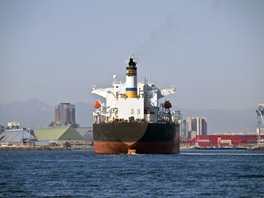O’quain, Shell, Benzene & Kidney Cancer: A case in the United States District Court, E.D. Louisiana ruled on a motion to dismiss.
The O’quain, Shell, Benzene & Kidney Cancer case documents what many people (deck officers, mates, able bodied seaman, tankerman on various vessels in navigation) may face today that may have worked in or around the petroleum industry, chemical industry and the petrochemical industry (on oil rigs, oil platforms, boats, ships, oil tankers, seismic vessels,tankers and vessels) and been exposed to Benzene – leukemia, kidney cancer or air borne chemical exposure. The court ruled: the motions should be GRANTED IN PART AND DENIED PART.
A brief summary of the facts include:
- Plaintiffs filed this suit against Shell and other Defendants: Radiator Specialty Company, United States Steel Corporation, LPS Laboratories, and Minnesota Mining and Manufacturing Company (collectively “Manufacturing Defendants”), seeking damages for personal injuries allegedly sustained from coming into contact with the chemical benzene, which O’Quain claims he was exposed to while working as an instrument technician on Shell vessels.
- O’Quain worked as an instrument technician of the marine crew for Shell from 1974 to 1993.
- O’Quain worked on various seismic vessels which were engaged in navigation and commerce and operating in and around the New Orleans area.
- Throughout his years working on Shell vessels, O’Quain alleges that he was regularly exposed to hazardous chemicals used on these vessels including: LPS Laboratories’ product `LPS Lubricant’, Minnesota Mining and Manufacturing Company’s product `3M Scotchkote Electrical Coating’, and Shell’s product `Shellsol.’
- Further, O’Quain was allegedly exposed to the chemical benzene from 1974-1978, which Plaintiffs claim is hazardous and, with repeated exposure, can potentially cause various blood disorders and cancers.
- Defendant Radiator Specialty Company manufactured, distributed and sold the product `Liquid Wrench’ which contained benzene.
- United States Steel supplied a product called “Raffinate” to the Radiator Specialty Company; Raffinate allegedly contained 14% benzene and made up 89% of the Liquid Wrench product used by O’Quain on Shell vessels.
- On November 8, 2007, O’Quain was diagnosed with kidney cancer.
- O’Quain alleges that as a result of repeated exposure to the benzene in Liquid Wrench, he suffered damage to his bone marrow and blood forming organs, resulting in the kidney cancer.
- O’Quain alleges he was unaware of the possible connection between benzene and his cancer until October 2011, when he was contacted regarding a co-worker that had recently developed leukemia, allegedly resulting from benzene exposure as well.
- Plaintiff brings suit for Jones Act negligence and unseaworthiness of various Shell vessels
To find out more on the case, see Case No. 2:12-cv-01693 – January 11, 2013.
BENZENE EXPOSURE
Benzene is a clear, colorless aromatic liquid that is highly flammable and is used in many industries, including, the petroleum industry, the petrochemical industry, the steel industry, the industrial chemical industry, the alkalies manufacturing industry, the paint industry and by the chlorine manufacturers.
Benzene exposure for workers in many aspects of:
- petroleum and gasoline refining
- as well as barge workers
- pipe-fitters
- tanker-men
- drum fillers
- shipping and receiving personnel in the petrochemical industry
- mechanics
- machinists
- other workers in a variety of general industrial occupations
- chemists
- laboratory technicians
- chemical workers and instrument men
- chemical truck and tank truck drivers
- rubber workers
- workers in the printing industry
- dry cleaning industry
- and others exposed to benzene in some form, including:
- gasoline
- crude oil
- and benzene-containing chemicals, such as:
- benzol
- naphtha
- toluene
- xylene
- reformate
- raffinate
- and many solvents and paint thinners
may cause:
- Leukemia
- Acute myeloid leukemia (AML)
- Acute non-lymphocytic leukemia (ANLL)
- Aplastic anemia
- Chronic myelogenous leukemia (CML)
- Myelodysplasia
- Myelodysplastic syndrome (MDS), or
- Lymphoma, including non-Hodgkins lymphoma
- Multiple Myeloma
- Kidney cancer
- Other potential problems
For more on benzene exposure, please follow this link: Benzene, Leukemia & Cancer.
At the Gooch Law Firm, we pride ourselves on providing our clients reliable representation for even the most challenging cases.
If you have been diagnosed with a serious disease (e.g., kidney cancer, leukemia, AML, CML, MDS, lymphoma, multiple myeloma, aplastic anemia etc.) from benzene exposure, and need a benzene lawyer to help you file a benzene exposure lawsuit, contact our office at 1.844.329.5955.
WE ARE HERE TO HELP YOU PROTECT YOUR LEGAL RIGHTS

